Cost-Plus, Fixed Bid, Time & Materials
Kim Ladin
8 years ago
Featured Answer
Sort by:Oldest
Comments (25)
Related Discussions
Cost-Plus or Fixed Price?
Comments (15)We have a cost-plus contract and I am very happy that we have it, because I'm the type to want details for everything going into our home. There are so many things that come up after signing the contract. I like the flexibility of being able to see costs, evaluate our options, and control what products/upgrades go into our home. We have a guaranteed maximum. Every line item was budgeted prior to our construction financing. We have a 10% builder's reserve for things that they may have under/over estimated, and we also have an owner's reserve that was baked into the financing for wiggle room with upgrades. I agree with what others say in that the key is finding a reputable builder. We asked for samples of their progress bills up front and gained an understanding of how the accounting would work. They gave us actual copies of other projects (addresses omitted), and showed us Change Orders and everything. Even though, there's some minor frustrations at times, the Cost-Plus is reassuring that quality is not being cut. Our GC also agreed to take out a few lines out of their workscope, but they helped us with a budget for the bank financing. We have the option as the project proceeds to cut different things -- like landscape, fencing, irrigation, etc. They have also agreed for me to personally purchase a few things (thus eliminating their fee), like a mail slot, dog door, one special chandelier that was purchased prior to us signing the contract, etc. They are small things, but in that way, they were not so petty to say that they needed to collect their fee on every single item. These things were discussed up front and is all part of the "trust." And trust is a big, scary factor. Just do your research on your GC, and make sure your contract is really ironed out!!...See MoreWhat kind of contract is this--fixed or cost plus?
Comments (4)It appears to be a turn-key (not owned by you until finished) Fixed Price contract with Allowances for some items. Allowances are like small Cost of the Work contracts within a Fixed Price contract. These Allowances should be well defined in the contract. I've never known anyone to be responsible for permit fees other than the owner of the project but if the builder owns the project until the end I guess the permit fees would be part of the Fixed Price unless specifically excluded or listed as an Allowance....See MoreFixed vs. Cost-Plus Contracts
Comments (28)bry911, you are quite right; on a Cost Plus a Fee project the owner is credited with all discounts that accrue to the General Contractor (but not the subs) so Joseph Corlett is not using a Cost Plus a Fee delivery method but the standard small project method of an hourly rate plus marked-up materials. This method has nothing to do with what is being discussed on this thread and therefore his parallels are specious and irrelevant. In a Cost plus a Fee contract type, an owner would not see a breakdown of a sub's competitive bid or invoice unless that was, for some reason, required by the contract (an owner can ask for almost anything in this kind of contract) and even then such breakdowns would normally be limited to special materials, fixtures and equipment not labor or overhead & profit. These costs might be reviewed by the owner if there was a change in the scope of the sub's work since that work would not be competitively bid. Such costs are often included as a proposed markup % in the sub's original bid. The point of this kind of contract is to allow any savings derived from competitive bidding of sub contracts to accrue to the owner rather than to the contractor. The contractor is in turn well compensated for this service by a negotiated Fee. Things get a bit more complicated when there is a Guaranteed Maximum Price. When the owner chooses a sub's bid that is higher than the lowest one, the GMP is increased by the difference. Also since the work of the GC's own forces is not bid, those labor rates are sometimes included in the contract. I have seen a Guaranteed Maximum Price split to provide a Maximum for those costs... we called it a Mini-Max. These contract provisions can get complicated and are therefore not attractive to homeowners without professional presentation or home builders without trained staff. That's unfortunate because such contracts can be of great benefit to all parties....See MoreCost-plus construction percentage/fixed cost-advantages/disadvantages
Comments (5)Cost Plus is an abbreviation of Cost of the Work Plus a Fee. The Fee can be a negotiated percentage of the Cost of the Work or a predetermined Fixed Fee. The Cost of the Work that you will pay for can be limited to a Guaranteed Maximum Price and if the Cost does not exceed the GMP there can also be a Shared Savings (usually 60% owner and 40% GC). What determines these options is a negotiation with the General Contractor. Has the GC not proposed the options he prefers? For you the best options will be determined by whether or not you are in a hurry and how concerned you are about cost, how much you want to be involved in the buyout from the subs and who will help you manage your contract responsibilities. This contract is usually used for larger projects where professional representation is required by the building code but it can be very useful for a home if the parties know how to use is properly....See Morefreeoscar
8 years agoKim Ladin
8 years agoUser
8 years agoJoseph Corlett, LLC
8 years agoKim Ladin
8 years agoaptosca
8 years agoUser
8 years agospammeplease13
3 years agoCharles Ross Homes
3 years agospammeplease13
3 years agoJoseph Corlett, LLC
3 years agolast modified: 3 years agobry911
3 years agospammeplease13
3 years agobry911
3 years agospammeplease13
3 years agoCharles Ross Homes
3 years agoaptosca
3 years agoCharles Ross Homes
3 years agospammeplease13
3 years ago
Related Stories
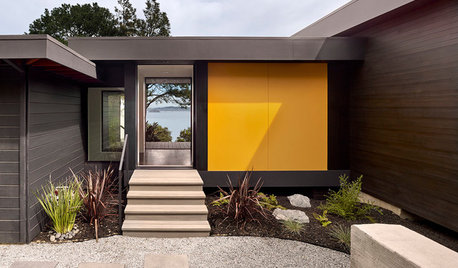
BUDGETING YOUR PROJECTConstruction Contracts: What to Know About Estimates vs. Bids
Understanding how contractors bill for services can help you keep costs down and your project on track
Full Story
GARDENING AND LANDSCAPINGBid Bad Garden Bugs Goodbye and Usher In the Good
Give ants their marching orders and send mosquitoes moseying, while creating a garden that draws pollinators and helpful eaters
Full Story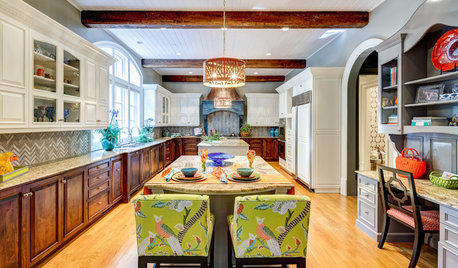
BEFORE AND AFTERSKitchen Rehab: Don’t Nix It, Fix It
A small makeover makes a big impact in a traditional kitchen in Atlanta with great bones
Full Story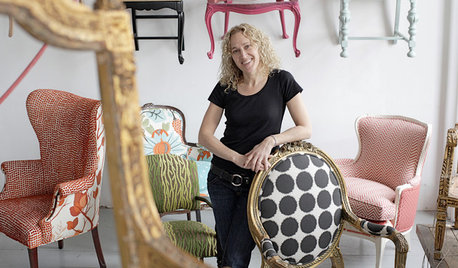
TASTEMAKERS3 Extreme Chair Makeovers — Plus DIY Reupholstering Tips
Spoiled seats and forlorn frames get kicked to the curb by a Philadelphia reupholstery whiz with a flair for salvaging and artistic designs
Full Story
ARCHITECTUREGet a Perfectly Built Home the First Time Around
Yes, you can have a new build you’ll love right off the bat. Consider learning about yourself a bonus
Full Story
DECORATING PROJECTSQuick Fix: Reupholster a Chair Seat
Take a chair from drab to fab, no sewing or special skills required, in just a few simple steps
Full Story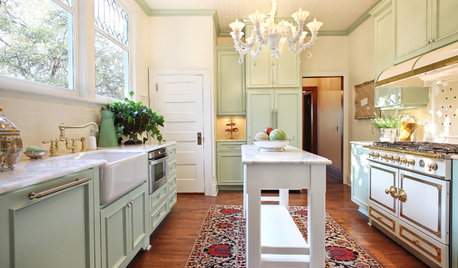
KITCHEN DESIGNKitchen Design Fix: How to Fit an Island Into a Small Kitchen
Maximize your cooking prep area and storage even if your kitchen isn't huge with an island sized and styled to fit
Full Story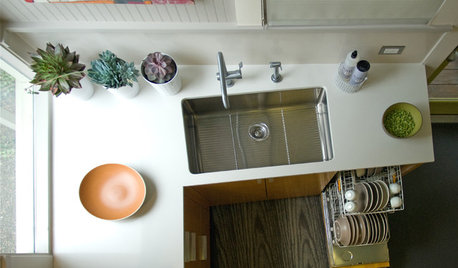
HOUSEKEEPINGHow to Fix a Stinky Garbage Disposal
No plumber’s fee or even a trip to the hardware store is required with these easy solutions
Full Story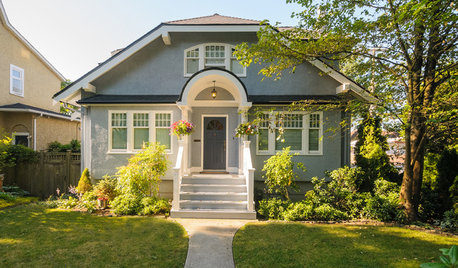
SELLING YOUR HOUSEFix It or Not? What to Know When Prepping Your Home for Sale
Find out whether a repair is worth making before you put your house on the market
Full Story
HOUSEKEEPINGQuick Fix: How to Patch a Drywall Hole
Dents and dings disappear, leaving your walls looking brand new, with this fix that even a novice can do
Full Story






Joseph Corlett, LLC